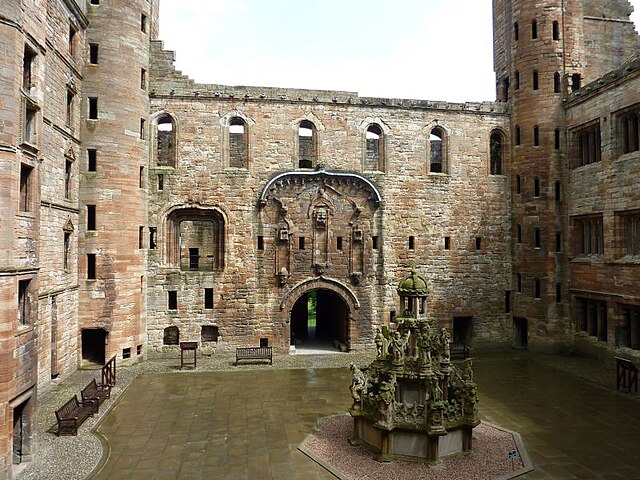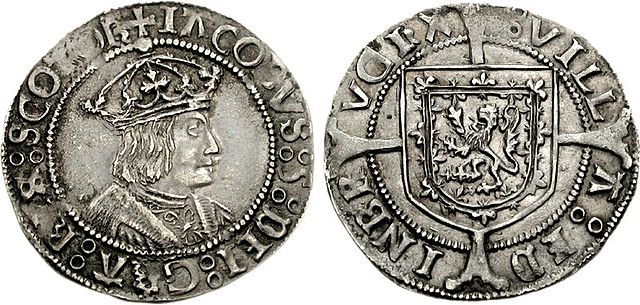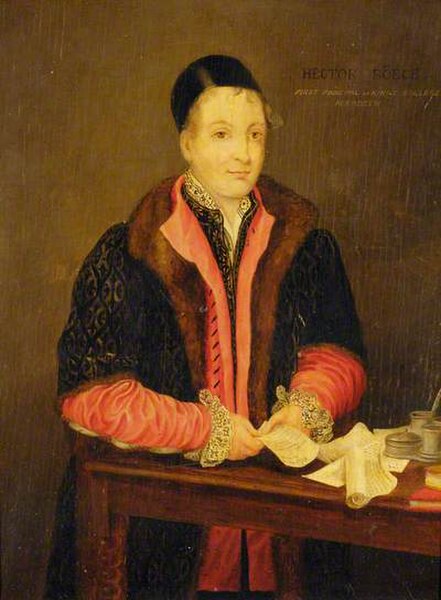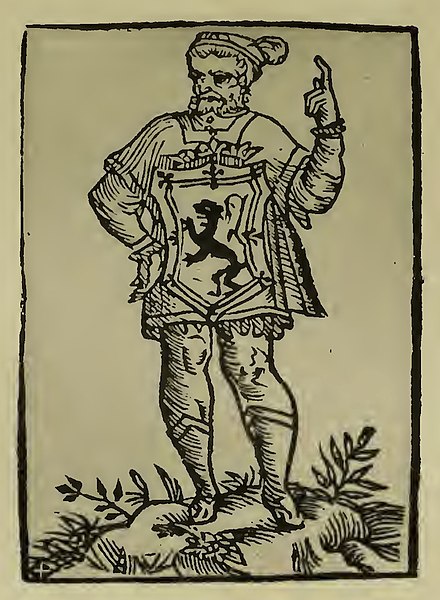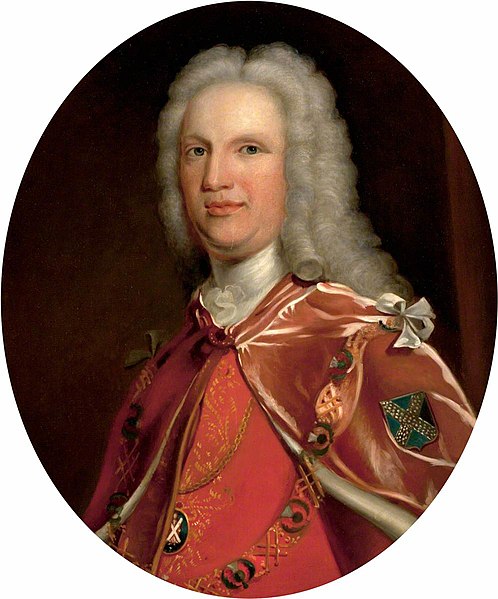The Renaissance in Scotland was a cultural, intellectual and artistic movement in Scotland, from the late fifteenth century to the beginning of the seventeenth century. It is associated with the pan-European Renaissance that is usually regarded as beginning in Italy in the late fourteenth century and reaching northern Europe as a Northern Renaissance in the fifteenth century. It involved an attempt to revive the principles of the classical era, including humanism, a spirit of scholarly enquiry, scepticism, and concepts of balance and proportion. Since the twentieth century, the uniqueness and unity of the Renaissance has been challenged by historians, but significant changes in Scotland can be seen to have taken place in education, intellectual life, literature, art, architecture, music, science and politics.
Linlithgow Palace, rebuilt for James V to suggest an open-air Renaissance courtyard
Groat of James V, showing him wearing an imperial closed crown
William Elphinstone, bishop of Aberdeen, founder of the University of Aberdeen and probably the architect of the Education Act 1496
Hector Boece (1465–1536), a major figure in European humanism, who returned to be the first principal of the University of Aberdeen
The Right Honourable the Lord Lyon King of Arms, the head of Lyon Court, is the most junior of the Great Officers of State in Scotland and is the Scottish official with responsibility for regulating heraldry in that country, issuing new grants of arms, and serving as the judge of the Court of the Lord Lyon, the oldest heraldic court in the world that is still in daily operation.
Lord Lyon King of Arms' crown
Sir David Lindsay of the Mount was Lord Lyon from 1542 to 1554. A poet and diplomat during Renaissance Scotland.
Sir James Balfour, 1st Baronet of Denmilne and Kinnaird, was Lord Lyon from 1630 to 1654. Noted scholar, annalist and antiquary. In 1654 he was deprived of his office by Oliver Cromwell.
Alexander Brodie, 19th of that Ilk, was Lord Lyon from 1727 to 1754. Despite receiving the Lyon office as a political reward, he nevertheless undertook his duties seriously.

